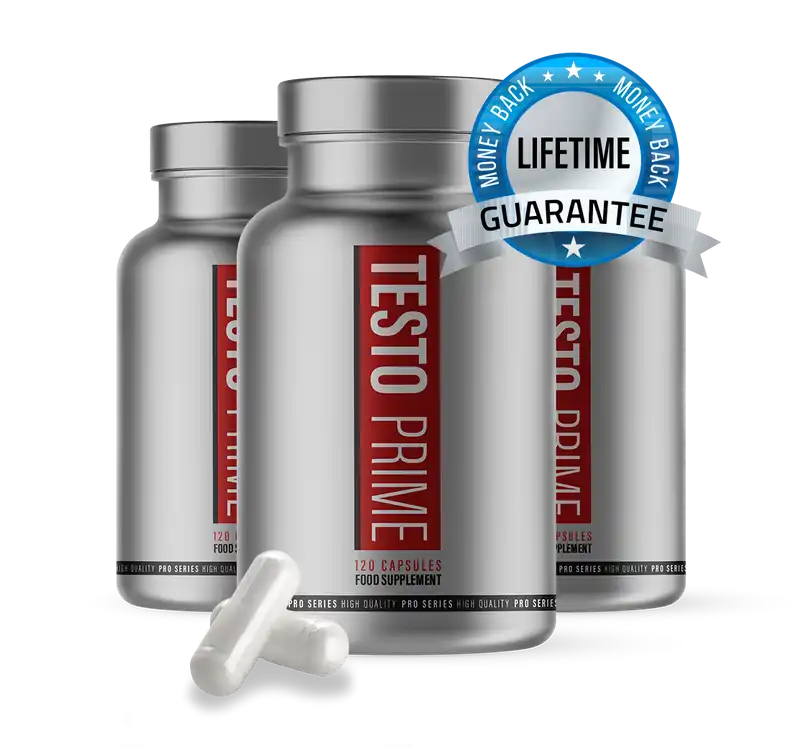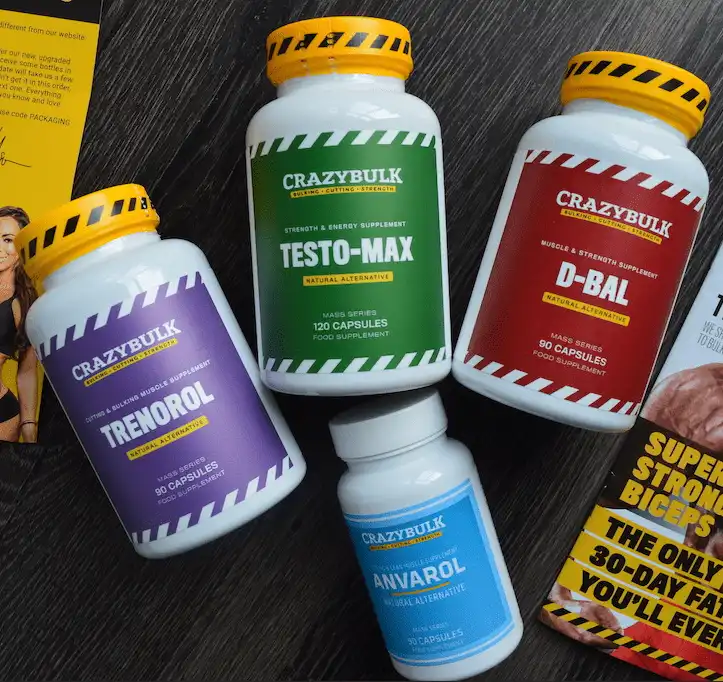Whey protein is a widely used supplement, favored amongst athletes and fitness enthusiasts for its high biological value and rich amino acid profile.
However, it’s not just the muscle-building potential of whey protein that’s of interest.
A key question has emerged in recent years – does whey protein increase testosterone?
Testosterone, a hormone that plays a vital role in exercise adaptation and muscle growth, has been linked to protein intake in various studies, but the relationship between testosterone levels and whey protein consumption remains a subject of scientific debate.
This article aims to delve into this complex relationship, shedding light on the facts and myths about whey protein and testosterone levels.
The Nature of Proteins and Hormones

Proteins, often referred to as the building blocks of life, play a multitude of roles in our body.
They are vital for growth, tissue repair, immune function, and creation of essential enzymes and hormones.
Hormones, on the other hand, act as signal carriers in our body, regulating numerous physiological processes from growth and metabolism to mood and reproductive health.
Whey protein, a by-product of cheese production containing all nine essential amino acids, is particularly lauded for its high biological value.
It’s readily digestible and rapidly absorbed into the bloodstream, making it a popular choice amongst athletes for muscle-building and recovery purposes.
Testosterone, a hormone predominantly produced in the testes of males and in smaller amounts in the ovaries of females, is crucial for muscle growth, bone density, and sexual health.
It’s a key player in the male reproductive system and influences muscle mass, fat distribution, and red blood cell production.
The link between testosterone and whey protein, however, is not as straightforward and requires further exploration.
Whey Protein and its Consumption
Whey protein is primarily consumed by athletes, bodybuilders, and fitness enthusiasts due to its excellent protein content and bioavailability.
It’s often taken post-workout to aid in muscle recovery and stimulate muscle growth.
Elderly individuals and those with specific dietary needs may also consume whey protein as a supplement to meet their daily protein intake.
A common misconception about whey protein is that it is only beneficial for those looking to build muscle mass.
While it does indeed aid muscle growth, the benefits of whey protein are not limited to this.
It is also beneficial for weight loss, as protein helps to increase feelings of fullness, thereby reducing calorie intake.
Another misconception is that consuming whey protein can lead to kidney damage.
While excessive protein intake can be harmful to individuals with preexisting kidney conditions, numerous studies have found no adverse effects on kidney function in healthy individuals.
Understanding the consumer base and debunking misconceptions about whey protein paves the way for a better understanding of its potential effects on testosterone levels.
Exploring the Link between Whey Protein and Testosterone
When it comes to the interaction between whey protein and testosterone levels, the overarching question is, does whey protein increase testosterone?
To answer this, we have to delve into the available scientific literature and scrutinize the research that has been conducted to date.
Numerous studies have explored this connection, with varying results.
Some studies posit a positive correlation between whey protein consumption and increased testosterone levels.
For instance, one study published in the International Journal of Sport Nutrition and Exercise Metabolism found that athletes who consumed whey protein had a modest increase in testosterone levels compared to those who did not.
Conversely, other research suggests that there’s no direct relationship between whey protein consumption and testosterone levels.
A study published in the Journal of the American College of Nutrition found that while whey protein did show benefits for muscle recovery and growth, it did not significantly affect testosterone levels in the study’s participants.
These conflicting results illustrate the complexity of the relationship between whey protein and testosterone, necessitating further, more comprehensive research.
As we continue, it’s crucial to keep in mind that individual responses can vary widely based on factors like age, gender, overall health, and specific dietary patterns.
The Effect of Whey Protein on Testosterone in Males
When discussing the impact of whey protein on testosterone levels in males, it’s essential to consider both the advantages and potential drawbacks of whey protein consumption.
On the positive side, whey protein contains branched-chain amino acids (BCAAs) such as leucine, isoleucine, and valine, which are known to stimulate protein synthesis and potentially assist in the production of testosterone.
A study published in the Journal of Strength and Conditioning Research found that resistance-trained men taking whey protein supplements exhibited an increase in testosterone levels post-exercise.
However, it’s important to note that these findings do not suggest a direct cause-effect relationship between whey protein and testosterone increase.
The testosterone spike could be related to the overall protein content or the physical workout itself, rather than the whey protein exclusively.
On the flip side, there are concerns regarding potential negative effects of whey protein consumption.
High doses of protein supplements could lead to digestive issues like nausea, bloating, and gas.
Also, while not directly related to testosterone, excessive whey protein intake without balanced nutrition might potentially impact kidney function, particularly in individuals with pre-existing conditions.
While it’s clear that whey protein offers significant benefits for muscle recovery and growth, the link to testosterone levels in males is complex and requires more research.
Individual factors such as age, lifestyle, dietary habits, and overall health play a substantial role in testosterone production and should be taken into account.
As it stands, it’s safe to say that while whey protein is certainly beneficial for muscle growth and recovery, its effect on testosterone levels remains a nuanced and multifaceted issue.
Does Whey Protein Influence Testosterone Levels in Females?
Just as in men, testosterone plays a significant role in women’s bodies, contributing to muscle mass, bone density, and sexual health.
Although women produce less testosterone than men, maintaining balanced levels of this hormone is crucial.
This brings us to the question: does whey protein increase testosterone in females?
When considering the potential effects of whey protein on testosterone levels in women, it’s important to note that the majority of the research conducted has primarily focused on men.
However, a few studies have also investigated the impact of whey protein on female populations.
An observational study in the Journal of Women’s Health Physical Therapy analyzed the effects of whey protein supplementation in active women.
The study concluded that while whey protein supplementation did contribute to lean body mass preservation, there was no significant effect on testosterone levels.
Similarly, a study published in The Journal of Nutrition found that protein supplementation, including whey protein, did not cause a significant variation in testosterone levels among female participants.
The research suggested that while whey protein may support muscle recovery and growth in women, it does not directly influence their testosterone levels.
Conversely, another research study suggested that high-protein diets could potentially impact hormone regulation in women, though the study did not specify the effects on testosterone levels.
More research is needed to understand the implications of this finding.
In conclusion, the current body of research seems to suggest that whey protein does not directly increase testosterone levels in females.
However, more comprehensive and female-focused research is required to provide a definitive answer.
As always, it’s recommended that those considering whey protein supplementation consult with a healthcare provider to understand the benefits and potential implications fully.
Myths and Facts: Whey Protein and Testosterone
Debunking Myths: Does Whey Protein Decrease Testosterone?
One prevalent myth concerning whey protein is the notion that its consumption might lead to a decrease in testosterone levels.
This belief, while widespread, is not backed by substantial scientific evidence.
Research to date has failed to establish a negative correlation between whey protein consumption and testosterone levels.
In fact, several studies suggest the opposite, indicating a potential (albeit modest) increase in testosterone levels post-exercise among those consuming whey protein.
However, this increase may be attributable to the overall protein content or the physical exercise itself, rather than to whey protein exclusively.
Therefore, the claim that whey protein decreases testosterone is a myth unsupported by existing scientific research.
Concluding Facts About Whey Protein and Testosterone Levels
Whey protein, a favored dietary supplement among athletes and fitness enthusiasts, offers proven advantages for muscle growth and faster recovery.
However, its direct impact on testosterone levels remains a complex and nuanced issue.
Some research suggests a potential increase in testosterone following exercise, but the exact cause-effect relationship is unclear.
For women, the current body of research indicates that whey protein does not directly increase testosterone levels.
Remember, individual factors such as age, lifestyle, dietary habits, and overall health significantly influence testosterone production.
While whey protein can contribute to a balanced diet and regular exercise routine, it should not be solely relied upon to regulate testosterone levels.
As always, it is recommended that individuals consult with a healthcare professional before starting any new dietary supplement regimen.
Conclusion
In conclusion, the relationship between whey protein and testosterone levels appears to be much more complex than often perceived.
While some evidence indicates a potential increase, especially following exercise, it’s important to note that this may be ascribed to the overall protein intake or physical workout, rather than whey protein exclusively.
For women, the current research suggests that whey protein does not directly influence testosterone levels.
However, it’s also true that the bulk of studies have primarily focused on men, indicating a need for more nuanced, female-centered research.
Above all, it’s crucial to remember that individual factors like age, lifestyle, dietary habits, and overall health significantly influence testosterone production.
While whey protein plays an integral role in muscle recovery and growth, it should not be the sole focus for those looking to regulate their testosterone levels.
A balanced diet, regular exercise, and consultation with a healthcare professional are paramount when considering any changes to your nutritional intake.
Ultimately, further research is needed to fully understand the intricate relationship between whey protein and testosterone.







